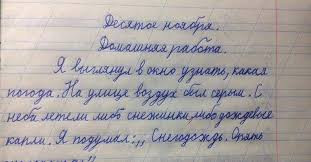Anna Podchashy. Deszczilód i snegodożd'
rus: При работе с новешей польской поэзией я постоянно обращаю внимание на особые жанровые образования, которые никогда не встречала в других славяноязычных традициях. Множество небольших стихотворений со сквозным (но не нарративным) сюжетом, общими ключевыми словами-якорями и общим лирическим "я" объединяются в одну подборку. В таком случае их нельзя переводить по одиночке: они теряют почву, из которой растут, выглядят бедно и сухо. Но и просто переводить текстовую цепь, не рефлексируя её жанр (это поэма? цикл текстов?), не получается. Такие миниатюры могут выглядеть изысканно и сами по себе. Я бы назвала это тематическими вариациями, разными подходами к одному непростому (но короткому) разговору. В каком-то смысле в польской поэзии он часто становится метарефлексивным: мы сталкиваемся с тем, что герои пытаются разобраться, что делает их поэтами, а происходящее в тексте — поэзией. Иногда ответ неутешителен: ничего и ничего. И всё же не показать эти жанровые констелляции другим никак не выходит! В качестве программного примера я хочу показать перевод недавней подборки польской поэтки Анны Подчаши, вышедшей в польском журанале Zakład.
eng: There is one special thing about working with contemporary Polish poetry. To be honest, I constantly notice specific genre formations that I have never encountered in other Slavic-language traditions. I don’t even know what to call it… A bunch of short poems with a common (but not narrative) plot, shared key words, and a shared lyrical “I” are put together in one collection. In this case, you can’t translate them one by one, because then they would lose the ground they grow from and end up looking poor and dry. But simply translating the text chain without reflecting on its genre (is it a poem? a cycle of texts?) doesn’t work either. Such miniatures can look exquisite on their own. I would call them thematic variations, different approaches to one difficult (but short) conversation. In a sense, in Polish poetry it often becomes meta-reflective. We encounter characters trying to figure out what makes them poets, and what makes the events in the text poetry. Sometimes the answer is disappointing: nothing and nothing. And yet, it is impossible not to show these genre constellations to others! As an illistrative example, I would like to show a translation of a recent selection by Polish poet Anna Podchashy (Podszaszy), published in the Polish magazine Zakład.

Envy
Buffalo hearts grew here. Sweet, silent,
heavy, fresh. Gentle giants with calm
eyes and trusting gaze. We envied them
while sanking our teeth into them. Our
name is graupel, and we don’t understand
what you want from us! Are we supposed to become
the sun?!
A big tongue
You called, so we came,
say graupels, though we’re from a different
fairy tale. At first we thought there was nothing for us here,
but it’s impossible to live there anymore!
It’s because of you, because of
your long tongue, why did you babble so much?
Silence
What was I supposed to do, be
a silent buffalo heart
and wait for a miracle?
Did I call you all?
The wind
In fact, I don’t know why
I am collecting these pebbles.
They will be useful, say graupels, seducing me,
Maybe, for instance, you’ll throw them in someone’s face,
And we will help with the wind.
But I collect them persistently, with peasant
tenacity, which murmurs in my
blood like a blizzard and a snowstorm.
And as I collect and collect,
I feel that something is about to suddenly overwhelm me,
some sweet, tempting scent, and look —
there it is! Beautiful, red veins pulsing through it.
Pebbles
When digging up pebbles,
the graupels think
they are my allies.
Didn’t I rinse them nicely? They flatter
each other in the hope of praise!
Nice, nice! You’d better tell your buddy
that in mid-May it’s high time
to settle down and not, like a fool,
damage the tomatoes.
A thing
They pulsate and pulsate, but I
still don’t believe
that this could be some valuable thing.
Nevertheless, I put it in a bucket,
and the graupels immediately want to stick their heads in there.
Paszoł won! * I shout. Wasn’t
buffalo hearts enough for you?!
______
* Get the fuck outta here! – translation for some generations
Е
I sit in a bucket and shake,
especially when it pokes me
with its dirty finger and asks,
you idiot, are you still alive?
Role
Wait, wait, I shout, something is terribly
wrong here! There has been a misunderstanding, a nightmarish
role reversal! The graupels remain silent, not making things any easier.
So I lean over the edge of the
bucket and call out inside: Who are you?
Who are you? The inside answers, because what else
is it supposed to say? What did you expect, reader, wisdom?
Reader:
No, but maybe we’ll find out who’s who here.
Anna Podczaszy is a poet and a former basketball player. Author of four poetry collections published by Biuro Literackie. Lecturer at the Foreign Language Center in Legnica.
Анна Подчаши, поэтка и бывшая баскетболистка. Она опубликовала четыре поэтических книге в издательстве Biuro Literackie. Сейчас она читает лекции в центре иностранных языков в Легнице (город в нижнесилезском воеводстве на западе Польши).
28.09.2025
